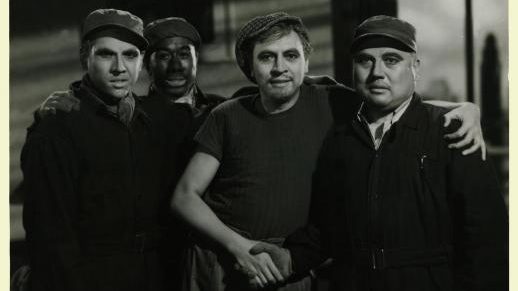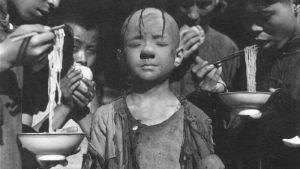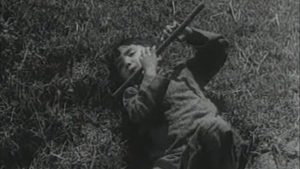The film:
Hailed as the finest Chinese film of all time, Spring in a Small Town is an intimate work of cinematic poetry that shows five people struggling to rebuild their lives in the aftermath of a war. A married woman’s humdrum life in a small town changes when her former sweetheart returns after a decade’s absence to visit his old friend, her ailing husband. Her voiceover creates a gripping psychological drama, even as Fei Mu’s lyrical cinematography shows people hesitating at a moment of uncertainty, amidst an environment of ruins. One year later, novice screenwriter Li Tianji starred as the villain in Crows and Sparrows (1949).
Xiaocheng zhi chun
Alternative English titles: When Spring Comes, Springtime in a Small City
Director: Fei Mu
Screenplay: Li Tianji
Wen Hwa (Wenhua) Film Studio
Date of release: September 25, 1948
Cast: Wei Wei, Shi Yu, Li Wei, Zhang Hongmei, Cui Chaoming
English subtitles translated by Christopher Rea
Learn more:
See the video lectures and other materials in the Spring in a Small Town (1948) module of the Chinese Film Classics online course.
Spring in a Small Town (1948) is discussed in chapter 12 of the book Chinese Film Classics, 1922-1949.
Related Posts
Fei Mu 費穆
Fei Mu (Fey Mou) was a theater director and film director best known for his acclaimed film Spring in a Small Town (1948)

Chinese Film Classics, 1922-1929 (2021), by Christopher Rea
An essential guide to the first golden age of Chinese cinema, offering detailed introductions to fourteen films.

2017/09/30-10/21: A Golden Age of Chinese Cinema, 1947-52, at BAMPFA
BAMPFA film series featuring seven films released in China between 1947 and 1952

Crows and Sparrows 烏鴉與麻雀 (1949)
An epochal film, produced and set at the end of civil war, centering on a fight over housing. Who will stay and who will go?

Wanderings of Three Hairs the Orphan 三毛流浪記 (1949)
Follows the misadventures of Sanmao as he tries to fill his belly on the streets of Shanghai. Adapted from the comic strip by Zhang Leping.

Song of China 天倫 (1935)
Fei Mu's traditionalist parable dramatizes the triumph of filial piety. Set to a lavish orchestral score and produced for a bilingual market.


